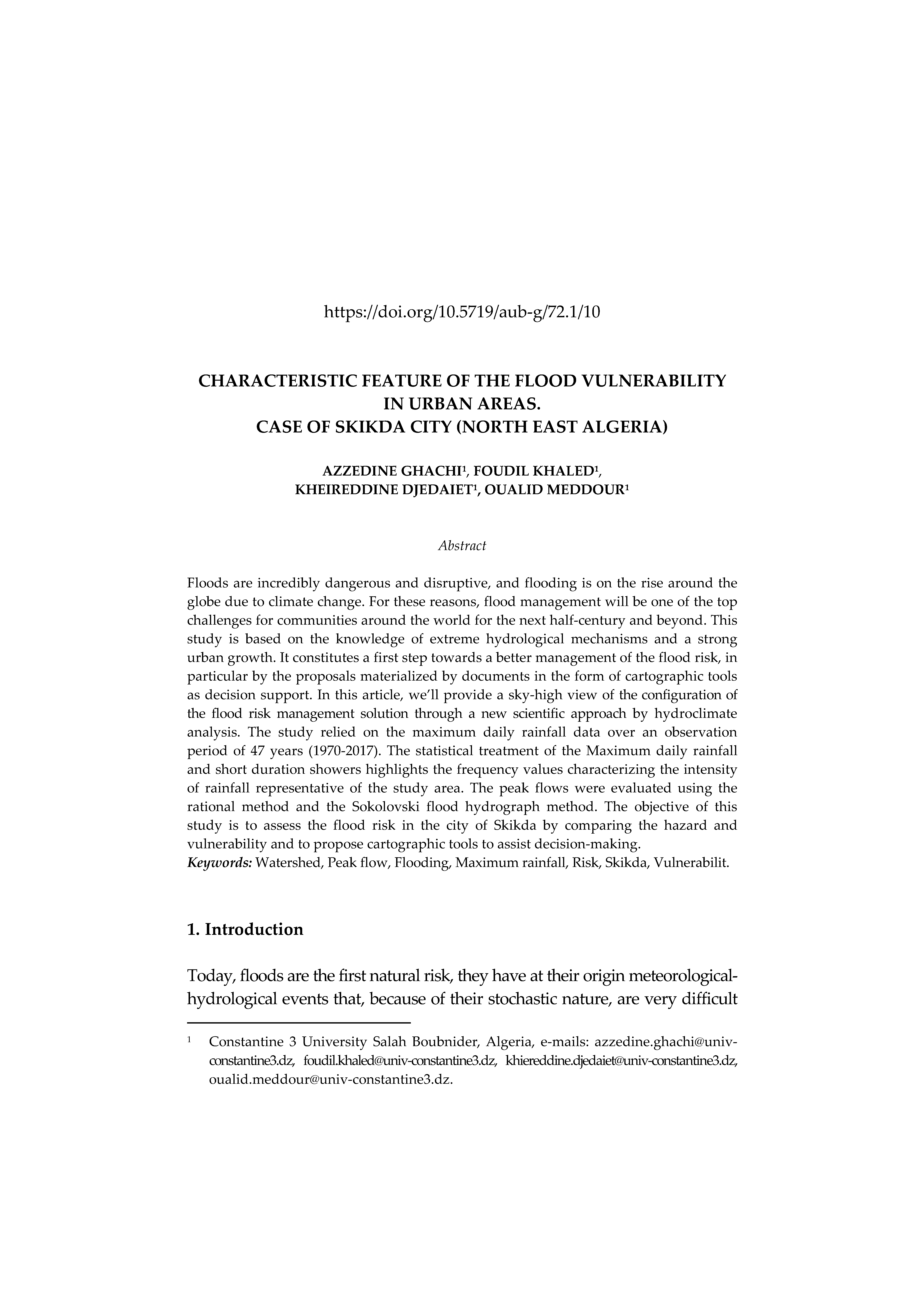CHARACTERISTIC FEATURE OF THE FLOOD VULNERABILITY IN URBAN AREAS. CASE OF SKIKDA CITY (NORTH EAST ALGERIA)
DOI:
https://doi.org/10.5719/aub-g/72.1/10Keywords:
Watershed, Peak flow, Flooding, Maximum rainfall, Risk, Skikda, VulnerabilitAbstract
Floods are incredibly dangerous and disruptive, and flooding is on the rise around the globe due to climate change. For these reasons, flood management will be one of the top challenges for communities around the world for the next half-century and beyond. This study is based on the knowledge of extreme hydrological mechanisms and a strong urban growth. It constitutes a first step towards a better management of the flood risk, in
particular by the proposals materialized by documents in the form of cartographic tools as decision support. In this article, we’ll provide a sky-high view of the configuration of the flood risk management solution through a new scientific approach by hydroclimate analysis. The study relied on the maximum daily rainfall data over an observation period of 47 years (1970-2017). The statistical treatment of the Maximum daily rainfall
and short duration showers highlights the frequency values characterizing the intensity of rainfall representative of the study area. The peak flows were evaluated using the rational method and the Sokolovski flood hydrograph method. The objective of this study is to assess the flood risk in the city of Skikda by comparing the hazard and vulnerability and to propose cartographic tools to assist decision-making.





